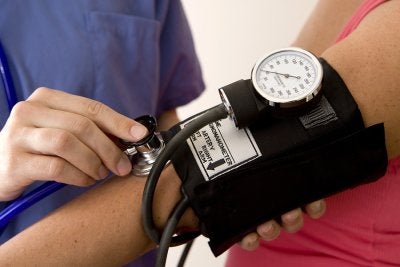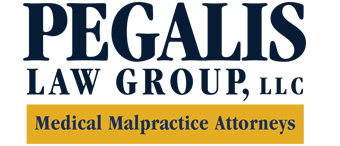-
The Challenges in Diagnosing Cancer
Diagnosing cancer in its earliest stages can make an enormous difference in how successful treatment is. By the same token, failing to diagnose cancer on a timely basis can reduce the effectiveness of treatment. Even if medical practitioners are careful and conscientious, however, it can still be difficult to diagnose many forms of cancer. These are some of the types of cancer that present the greatest challenges:
Pancreatic Cancer
While it is considered relatively rare, pancreatic cancer also has one of the lowest survival rates of any type of cancer. The symptoms are subtle and can easily be mistaken for the signs of a different condition. There is also no widely agreed-upon method for effectively detecting this cancer at its earliest stages.Liver Cancer
Like pancreatic cancer, liver cancer does not usually show any obvious symptoms in its early stages. Since the liver is located deep inside the body, the tumors are impossible to detect through self-examination. By the time it can be more easily diagnosed, the disease has usually spread to the point where it is much more challenging to treat. Brain Cancer
Brain Cancer
Brain cancer is one of the most difficult forms of cancer to identify. There is no way to screen for a brain tumor, and the symptoms—which include headaches and muscle weakness—are readily confused with those of other illnesses. Unfortunately, brain cancer is not usually diagnosed until its later stages.Ovarian Cancer
Cancer of the ovaries is the deadliest type of reproductive cancer. As with other hard-to-detect cancers, ovarian cancer does not present any obvious symptoms at first. It is also difficult to detect during pelvic exams, and it is not usually found during Pap tests. There is no reliable screening for ovarian cancer, so it’s important to see a physician if you notice any of the warning signs—which include bloating, feeling unusually full after eating, and more frequent urination. Women who are positive for the BRCA gene are at a greater risk for developing Breast Cancer but also Ovarian Cancer. You should discuss your particular situation with your physician to establish a plan for surveillance and care options.If you believe that you or a loved one has suffered serious consequences because a medical professional failed to identify the symptoms of cancer, it’s time to talk to Pegalis & Erickson, LLC. Our legal team has nearly 50 years of experience bringing successful medical malpractice suits on behalf of our clients. For a free consultation at our law office in Long Island, New York, call (516) 684-2900.
-
Do you know where your Brachial Plexus Is?
Every time you bend your wrist, raise your hand, or shrug your shoulders, you’re making use of your brachial plexus, a bundle of nerves centered in your spinal cord. The brachial plexus is responsible for controlling the movement of your entire arm! If a doctor or mid-wife uses force or twists a baby’s head during labor and delivery, it can result in injury to the baby’s nerves and chronic arm paralysis. This condition is known as Erb’s Palsy or Brachial Plexus palsy. While some children will make a full recovery as toddlers, other children move into their teens and adulthood not being able to enjoy full use of that arm. The condition will then continue through their lifetime. Treating Erb’s Palsy as soon as diagnosed can include a combination of physical therapy and nerve grafts. That oftent leads to a better lifetime outcome.
 If you wonder if your child’s disability could be the result of a medical error, it’s important that you talk with an experienced medical malpractice attorney. Pegalis & Erickson, LLC, can provide you with the professional legal guidance you require, at no charge. To reach our New York office, call us at (516) 684-2900.
If you wonder if your child’s disability could be the result of a medical error, it’s important that you talk with an experienced medical malpractice attorney. Pegalis & Erickson, LLC, can provide you with the professional legal guidance you require, at no charge. To reach our New York office, call us at (516) 684-2900. -
Focusing on Heart Health
Responsible for an estimated 1 out of every 4 deaths in the U.S., heart disease is America’s deadliest health problem. There are a number of steps you can take to lower your risk of developing heart problems, including maintaining a healthy weight, eating a nutritious diet, and getting plenty of exercise every day. One of the biggest risk factors for heart disease is high blood pressure. If your blood pressure is high, effectively controlling it could be a life-saving change for you. Don’t forget to remind your loved ones to have their blood pressure checked by their physician on a regular basis. High blood pressure can be asymptomatic, yet its danger lies in its connection to stroke and other serious vascular diseases. Given this aspect of high blood pressure, it is especially important to make sure your healthcare provider hears and responds to your concerns in a manner you are comfortable with—and, should your expectations go unmet, it is critical to speak up.

Pegalis & Erickson, LLC, has been fighting to protect the rights of patients who have suffered due to medical malpractice for nearly half a century. If you or a loved one has suffered cardiac arrest because your concerns were not treated seriously, call our Long Island legal office at (516) 684-2900 to schedule a consultation.
-
Focusing on Women’s Heart Health
Did you know that heart disease is the number one killer of women? Causing one in three deaths, heart disease kills about one woman each minute. February is heart health month, so it’s a great time to think about the risk factors, as well as preventive measures to protect women’s heart health.
In women, heart disease can present differently than it does in men. As an example, consider how women experience heart attacks. Rather than the crushing chest pain most people associate with a heart attack, women tend to report pressure or discomfort in the chest. In fact, women sometimes have heart attacks without any chest pain at all, instead experiencing symptoms like:
- Discomfort in the neck, jaw, shoulder, upper back or abdomen
- Shortness of breath
- Arm pain, occurring in one or both arms
- Nausea or vomiting
- Sweating
- Lightheadedness or dizziness
- Unfamiliar fatigue
Women often show up at the emergency room with some of these symptoms, and are incorrectly diagnosed with other issues, like heartburn, indigestion, or even psychological or emotional problems. Because of a lack of awareness about women’s heart health, many women have already suffered significant damage to the heart muscle by the time they are diagnosed correctly. Sometimes, by the time symptoms get bad enough to compel a woman to go to the emergency room, it’s already too late to save her life.

Who is at risk? For women, risk factors for heart disease include smoking, obesity, diabetes, high cholesterol, high blood pressure, menopause, mental stress and depression, complications of pregnancy, and a family history of heart disease. The best defense against heart disease, then is to stop smoking, eat a heart healthy diet, exercise regularly, maintain a healthy weight, and try to reduce your stress. It’s important to be proactive in regard to your health, and see a doctor regularly, so that you are less likely to be misdiagnosed if you do have a problem
Why are women so often misdiagnosed when it comes to heart disease? Many women die of heart disease, simply because their condition went undiagnosed. This may be because doctors fail to see the subtler signs exhibited by women, or it may be because women tend to downplay their own symptoms. Whatever the reason, it’s important to take charge of your own health, and pay attention to what your body is telling you. Don’t immediately accept a diagnosis, but push for a thorough examination if you feel that something is truly wrong.
If you are dealing with an instance of medical malpractice, contact Pegalis & Erickson, LLC for capable legal representation in the area of Long Island, New York. For almost 45 years we have advocated for people of all ages, in order to help our clients financially and make healthcare safer for everyone. You can reach us today by calling (516) 684-2900.
Recent Posts
Popular Posts
categories
- Uncategorized
- Infographic
- Patient Safety
- Patient Health
- Stillbirth
- Birth Injuries
- Medical Malpractice
- Medical Negligence
- Event
- Erb's Palsy
- Injury
- ER
- Video
- Cancer Misdiagnosis
- Medication Errors
- Cerebral Palsy
- Medical Negligence Lawyer
- Anesthesia Injuries
- Brachial Plexus
- Prostate Cancer
- About Us
- Men's Health
- Skin Cancer
- Breast Cancer
- Misdiagnosis
